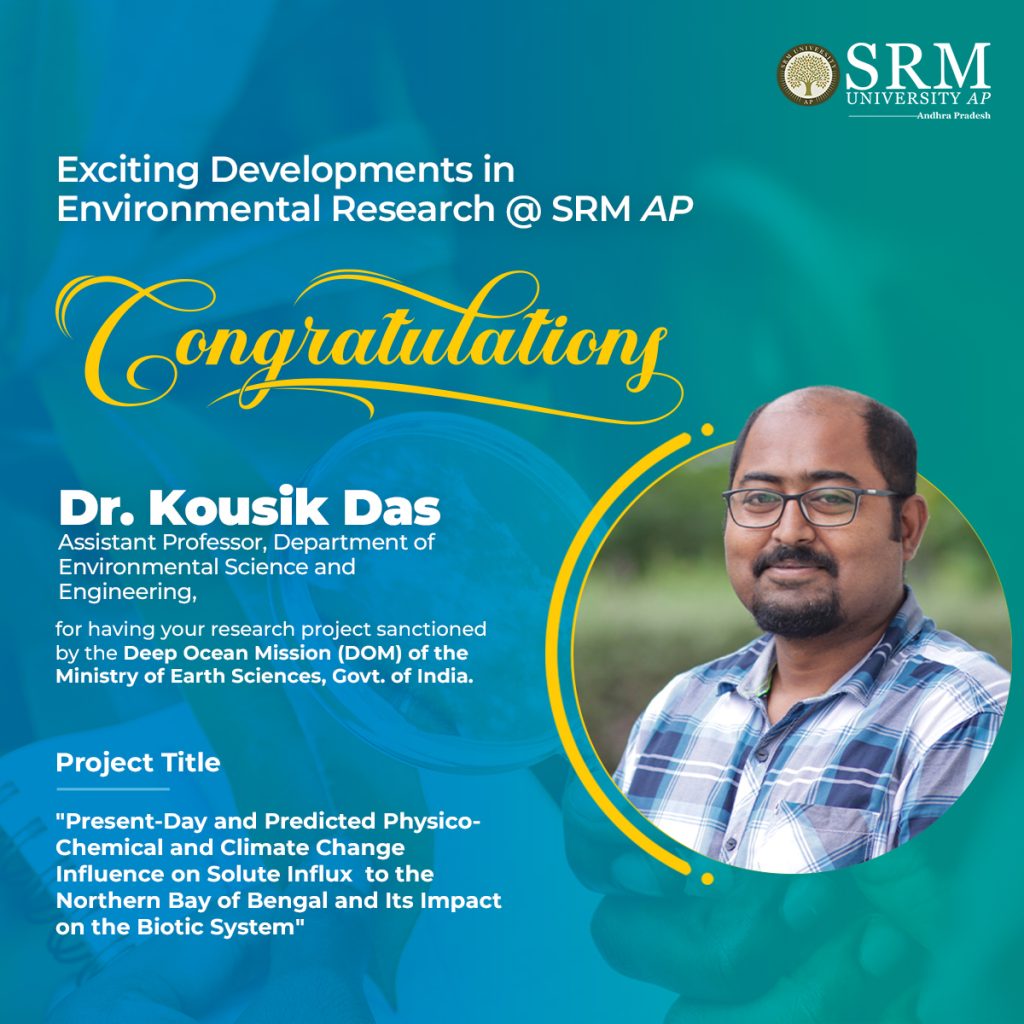
Dr Kousik Das, Assistant Professor from the Department of Environmental Science and Engineering has been sanctioned the project titled “Present Day and predicted physico-chemical and climate change influence on solute influx to Northern Bay of Bengal and its impact on biotic system”. sanctioned by the Deep Ocean Mission (DOM) of the Ministry of Earth Science, Govt. of India. Dr Kousik Das has been granted Rs. 42,42,000 as CO-PI for Rs. 1,89,19,100/- worth project, which will be undertaken in collaboration with researchers from esteemed institutes such as IIT Kharagpur and IISc Bangalore.
Explanation of the research in layperson’s terms
The proposed research work consists of a quantitative and qualitative study of seasonal solute geochemistry of ocean water and biotic diversity in marine ecosystems, along with scenarios of predicted oceanic circulation pathways at present times and futuristic cases expected in a changing climate. The study will be done by coupling physical and chemical hydrogeological techniques, which include the installation of marine observation stations and field equipment after the generation of the conceptual framework. The project will work towards making the scientific community more acquainted with the hydrodynamics and chemodynamics of the Bay of Bengal ocean water.
Practical implementation/ Social implications of your research
Seawater characteristics in the head of the Bay of Bengal are rapidly evolving due to changing influx from terrestrial sources. In particular, the head Bay region has undergone rapid variations in water quality due to extreme climate conditions, sea level rise, tidal impact, and effects of ocean acidification. Our aim is to hypothesise the climatic and hydrological processes involved in altering the ocean water nutrient and trace element cycling and their subsequent impact on the marine biohabitat.
Future research plans
- Nutrient cycle of northern Bay of Bengal
- Trace element cycle of the Bay of Bengal
- Impact of climate change on biogeochemical cycle
- Impact of hydrological drivers on marine ecosystems

